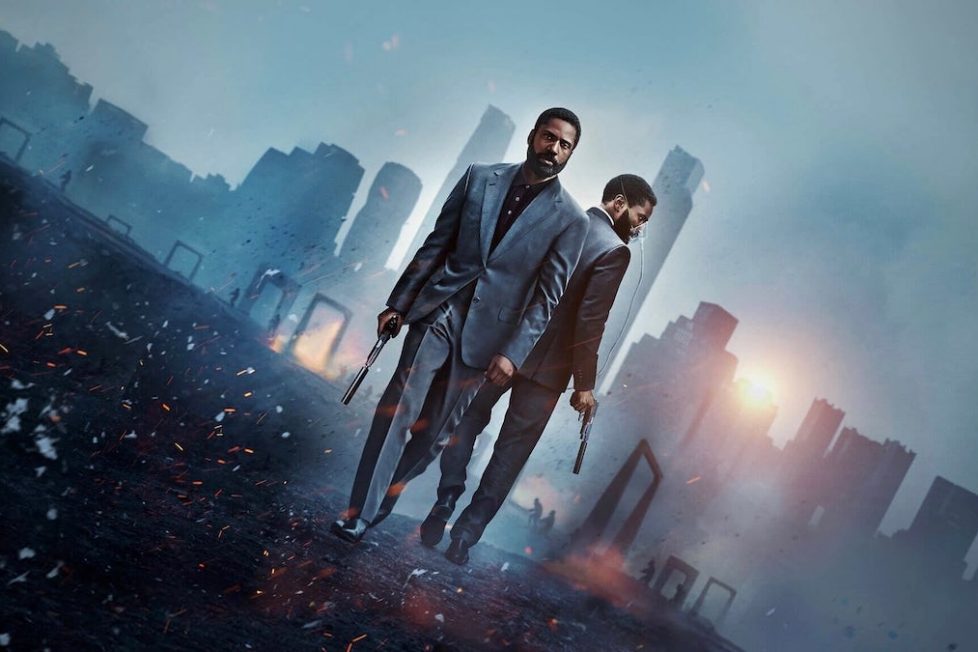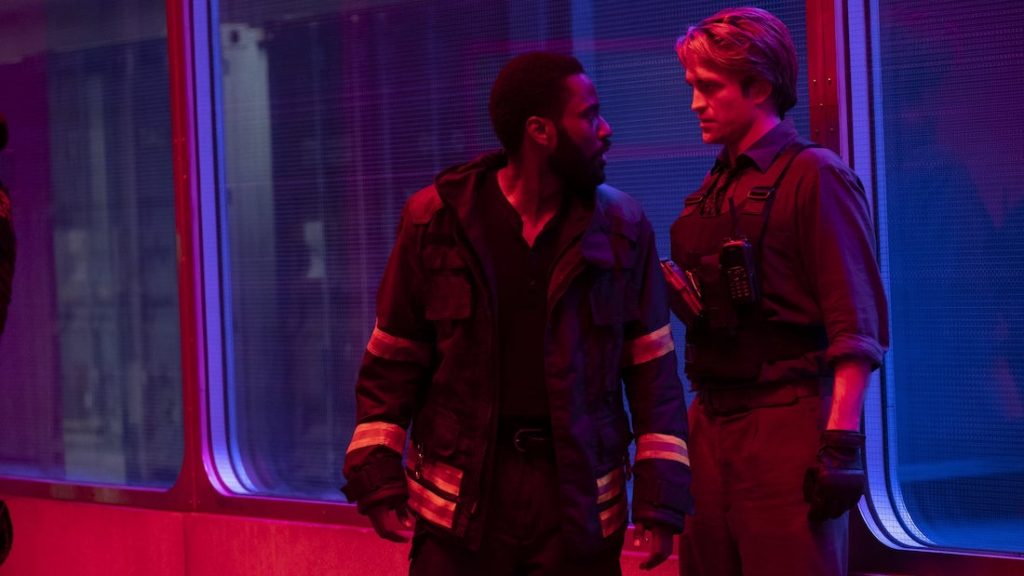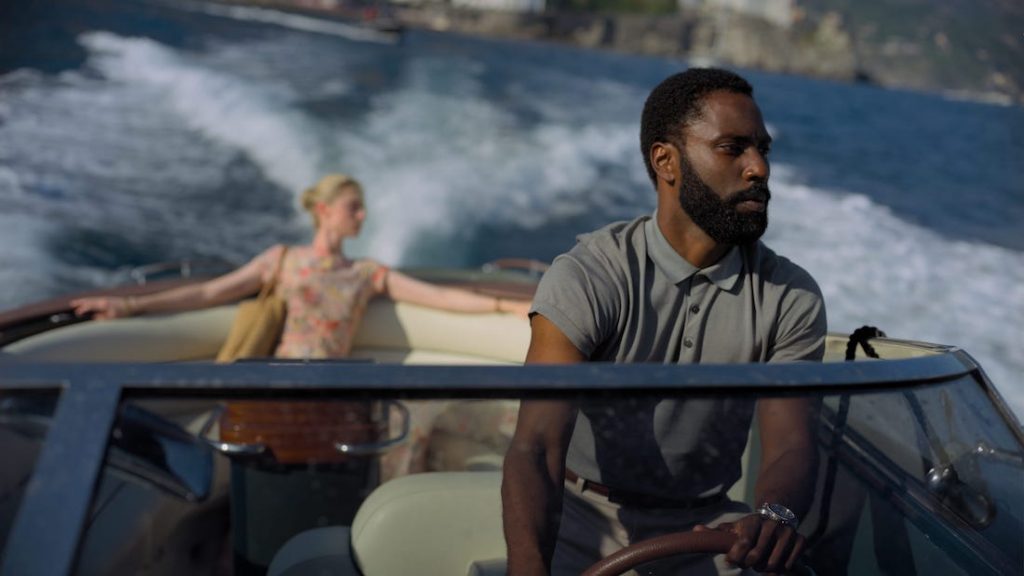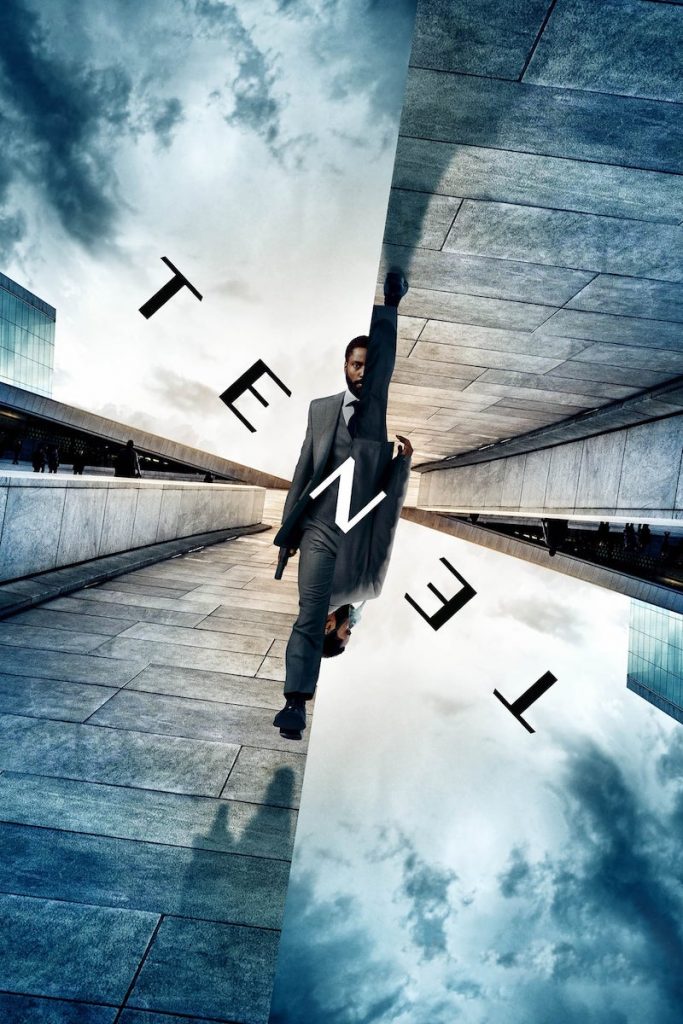TENET (2020)
A Protagonist journeys through a twilight world of international espionage on a mission that will unfold in something beyond real time.

A Protagonist journeys through a twilight world of international espionage on a mission that will unfold in something beyond real time.


Christopher Nolan is fascinated by time. Memento (2000) told its story backwards, Inception (2010) had time moving slower inside dreams compared to wakeful reality, Interstellar (2014) touched on time dilation caused by long-distance space travel, and every storyline in Dunkirk (2017) covered varying periods of time. Tenet is yet another bold and ambitious narrative that plays with chronology, albeit in a far less emotional way.
An unnamed ‘Protagonist’ (John David Washington) working for the CIA is recruited into a mysterious organisation following a terrorist siege of an opera house in Ukraine. He soon discovers there’s a “temporal cold war” threatening the end of mankind, involving arms that are being sent back into the past with “inverted entropy” (i.e. they’re perceived as moving backwards through time). The Protagonist is helped by British intelligence agent Neil (Robert Pattinson) to get closer to the Russian dealer behind the enterprise, oligarch Andrei Sator (Kenneth Branagh). But in order to get to him, the Protagonist must befriend Sator’s abused wife Kat (Elizabeth Debicki), whom he grows attached to.

Sometimes criticised for being a cold filmmaker, it’s easier to understand that opinion watching Tenet. This film is, unfortunately, more focused on plot and concept than in developing the characters of its four leads, who are used like hollow chess pieces in the narrative. Nolan is an acknowledged fan of the James Bond franchise, and while Tenet is a globe-trotting espionage thriller with elements of a classic 007 adventure… there’s no lightness of touch, which makes it a chore.
Nolan’s previous films had something to anchor audiences to the high-concept material emotionally (like Matthew McConaughey’s relationship to his family in Interstellar), but Tenet never makes us care for anyone involved. The hero doesn’t even have a name, underscoring how much of a cypher he is. John David Washington (BlacKkKlansman) is a charismatic young actor who does what’s required to play an enigmatic and suave archetype, but his role is empty almost by design. And was anyone else reminded of his father Denzel’s role in Déjà Vu (2006) during this film?

Strangely, the only sense of recognisable humanity comes from the twisted relationship between Kat and Andrei, but it’s a hackneyed trope of a nasty gangster unable to let his gorgeous moll leave him. And it continues the puzzling fact that Nolan seems to ignore sex in all of his films, even when a certain relationship is crying out for a love scene. That’s actually another reason handing him a Bond movie might not be a good idea!
The idea that excited Nolan enough to develop Tenet certainly isn’t something I’ve seen before. I love time-travel movies and it’s hard to find fresh approaches to them, but Tenet manages this difficult feat. The notion of people and objects travelling backwards through time isn’t something I’ve imagined before. But while it’s great to see a fascinating new form of time-travel in a story, the logic doesn’t click easily… at least not without the use of a diagram. It doesn’t help that Ludwig Göransson music score drowns out a lot of seemingly important dialogue along the way (in my screening anyway).

Tenet’s biggest problem is that having things flow the wrong way down a timestream, to enable reversed action sequences, is an idea that isn’t as cool or mindblowing as it perhaps seemed on paper. It’s often no more clever than watching a DVD being cleanly reversed, although sequences do become more challenging when people are seen moving forward in time through environments moving backwards from their perspective. But those moments aren’t as plentiful as one would expect from a $250M blockbuster.
I was reminded of how The Matrix (1999) cleverly used its ‘bullet time’ effect to raise the bar of its kung fu action and gunfights, but Tenet doesn’t achieve the same elevating effect by rewinding car crashes and sucking bullets out of walls. During a climactic action scene involving two teams of mercenaries, each travelling in opposite directions in time in a “temporal pincer movement”, I felt like the VFX was sometimes a detriment to just seeing a linear mission play out.

Sadly, Tenet seems to be the result of a gifted filmmaker becoming fixated on telling non-linear narratives and getting carried away. The Prestige (2006) is his best movie, and The Dark Knight trilogy (2005-2012) his most commercial, and they all share straightforward narratives and the balance of other writers being involved. Left unchallenged by producers who, understandable, think Nolan has the Midas Touch… he’s starting to make ambitious arthouse blockbusters that aren’t emotionally rich enough to keep audiences hooked through any confusion.
I’m usually excited to watch a complex time-travel movie again and again, in order to catch everything I missed or didn’t properly grasp the first time around, but because Tenet has weak characters and poorly-defined stakes… the prospect of seeing it again isn’t appealing.
UK • USA | 2020 | 150 MINUTES | 2.20:1 • 1.43:1 (IMAX) • 1.90:1 (Digital IMAX) • 2.39:1 (35mm prints) | COLOUR | ENGLISH


writer & director: Christopher Nolan.
starring: John David Washington, Robert Pattinson, Elizabeth Debicki, Dimple Kapadia, Michael Caine & Kenneth Branagh.
